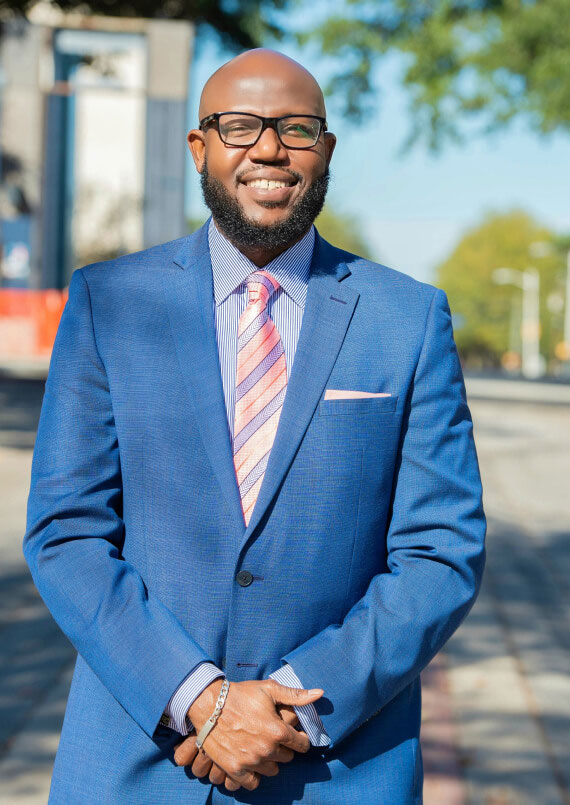Nursing Home Abuse Lawyer in Columbia, SC

When older loved ones can no longer care for themselves or when you and your family can no longer provide the care and assistance they need, your family may turn to a nursing home or assisted-living facility to provide your loved one with safety and comfort in their later years. Tragically, nursing home residents are especially vulnerable to abuse or neglect at the hands of the individuals and facilities that have been hired to care for and protect them.
If your loved one is a victim of abuse or neglect by nursing home staff or management, a Columbia nursing home abuse lawyer from the Law Offices of S. Chris Davis could help your family to seek justice. Our firm is dedicated to providing compassionate, personalized legal representation to injury victims throughout South Carolina.
Our nursing home abuse lawyer can seek financial compensation for the harm your loved one has suffered and hold those responsible for the harm accountable for their conduct. If someone in your family is a victim of nursing home abuse or neglect in Columbia, SC, reach out to the Law Offices of S. Chris Davis today for a free initial consultation to discuss your legal options. If you are not yet sure of whether your loved one is being abused or neglected but you suspect that something is very wrong, connect with our team today. We understand how to uncover the truth, whatever the truth may be.
What Are the Common Types of Abuse in Columbia Nursing Homes?
Different types of abuse and neglect are all-too-frequent occurrences at nursing homes in Columbia. Neglect or abuse might include:
- Physical abuse: The intentional infliction of injury and trauma, often through hitting, punching, slapping, kicking, choking, pushing, or restraining a resident.
- Emotional abuse: This abuse causes a resident to feel afraid, distressed, intimidated, or threatened, usually through verbal abuse involving yelling, foul language, or belittling. Emotional abuse can also involve threats of physical abuse or withholding of necessities or privileges.
- Financial abuse: This involves the manipulation, coercion, or exploitation of a nursing home resident to gain control of the resident’s financial resources or to take the resident’s assets or financial resources. Examples of financial abuse include persuading the resident to name the abuser in the resident’s estate planning, taking property from the resident’s room, or withdrawing funds from the resident’s financial accounts.
- Sexual abuse: This can involve behaviors such as nonconsensual sexual acts or sexual contact, exposing a resident or the abuser exposing themselves to the resident, or forcing a resident to view lewd or obscene materials or acts.
- Neglect: This involves failing to provide the care necessary to protect a resident’s physical and emotional well-being. Neglect can include failing to provide food, water, medication, social contact, medical care or failing to provide appropriate supervision and assistance to prevent falls or wandering.
- Abandonment: Sometimes considered the most extreme form of neglect, abandonment occurs when all care for a resident is intentionally removed.
- Self-neglect: This refers to failing to intervene when a person fails to care for their own needs, like eating or bathing.
Common Types of Injuries Resulting from Nursing Home Abuse and Neglect
Some of the most frequent kinds of physical injuries suffered by victims of nursing home abuse or neglect that our clients seek compensation for include:
- Psychological injuries, including emotional withdrawal, depression, anxiety, mood changes/swings, or post-traumatic stress disorder
- Bruising
- Cuts or lacerations
- Internal injuries and bleeding
- Broken bones
- Bedsores
- Decubitus ulcers
- Fall injuries
- Dehydration and malnutrition
- Infections, including gangrene or sepsis
- Overdosing or underdosing
- Sexually transmitted infections
Who Commits Nursing Home Abuse?
Anyone who works in a nursing home can commit abuse or neglect. Those who may be held responsible for unacceptable conduct include:
- Nursing home staff, including nurses, orderlies, maintenance staff, or kitchen staff, who directly inflict abuse or neglect upon residents
- Nursing home administrators, who may negligently hire, train, or supervise staff members who commit abuse or neglect or fail to act in response to reported abuse or neglect or suspicions of abuse or neglect
- Other nursing home residents who abuse their fellow residents
- Doctors, including third-party contractor physicians or physicians with privileges at the nursing home, who may render inadequate medical care or who may intentionally abuse residents
Who Could Be Held Liable for Nursing Home Abuse or Neglect in SC?
As a practical matter, the owner or operator of a nursing home is usually in a position to be held liable for abuse or neglect because the company or entity that owns and operates the facility will most likely have the financial resources to fully compensate your loved one and family. Nursing home owners and operators may be held vicariously liable for the intentional acts or negligence committed by the employees and staff of the nursing home. Individuals responsible for inflicting abuse or neglect may also be held liable for their intentional acts or negligence.
In some cases, the person who commits nursing home abuse or neglect may be employed by third-party contractors who perform services in the nursing home, such as cleaning/maintenance or food services. When third-party contractors inflict abuse or neglect on nursing home residents, the individual contractors and their employers may also be held liable for the harm suffered by a victim.
